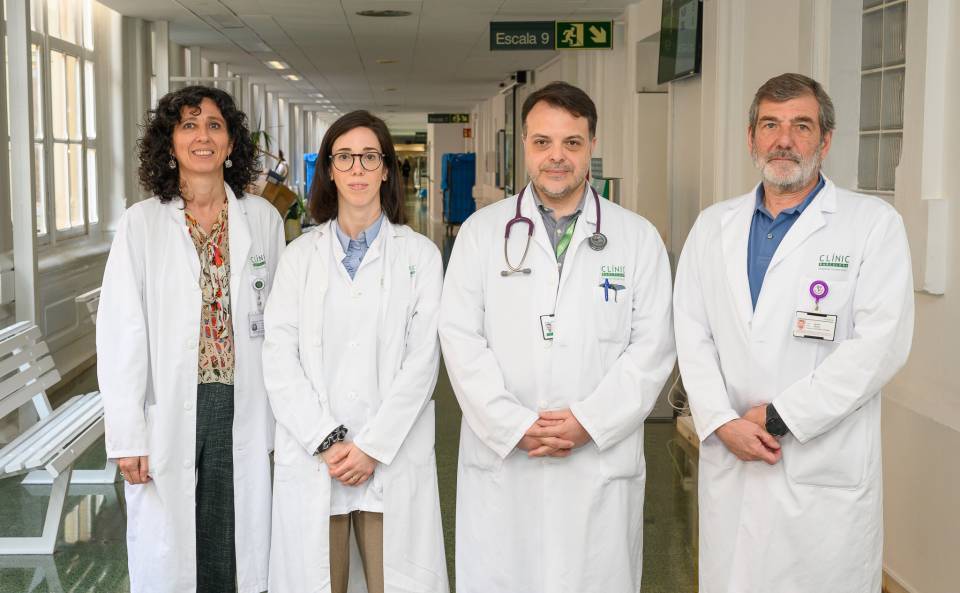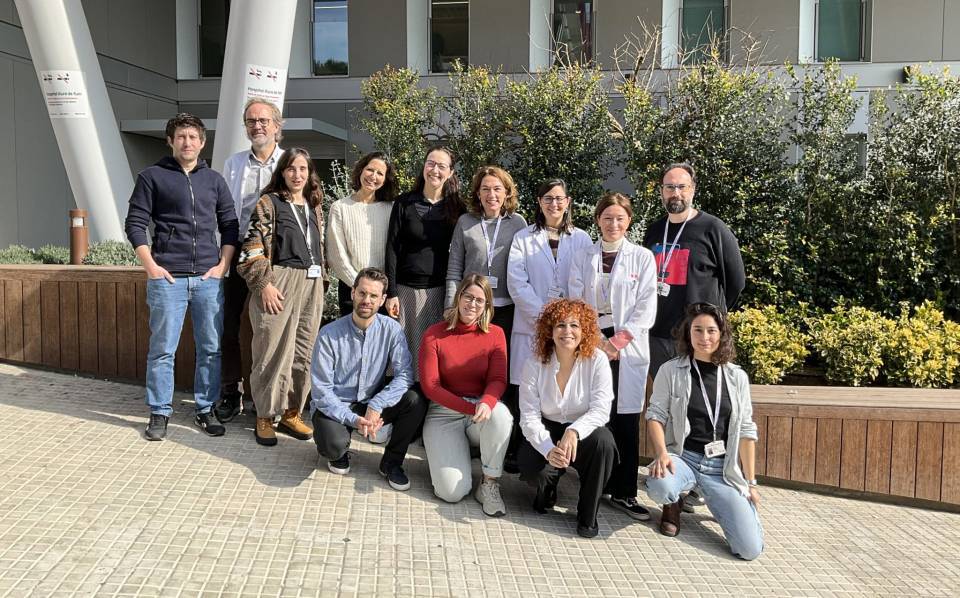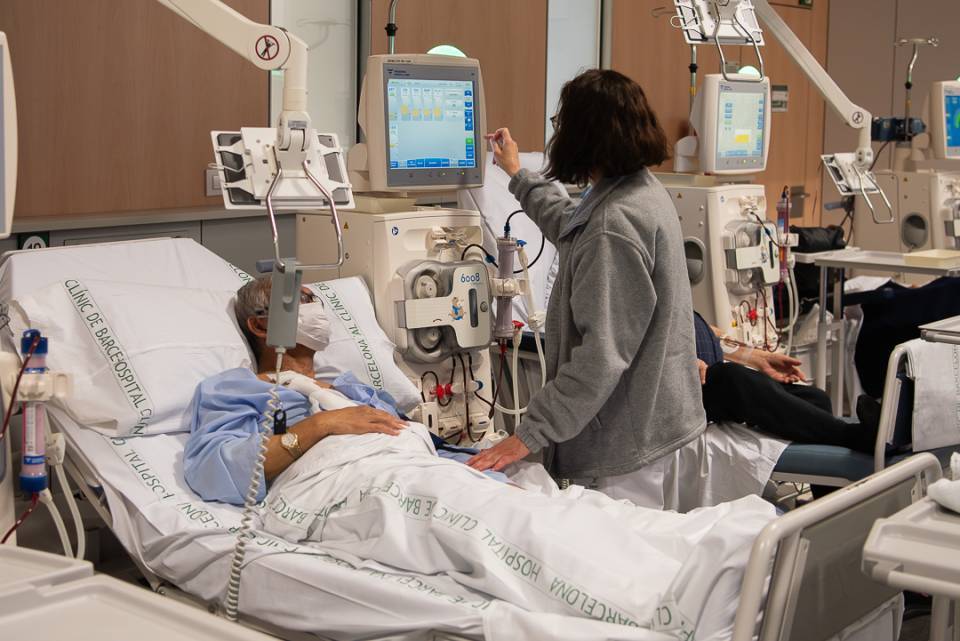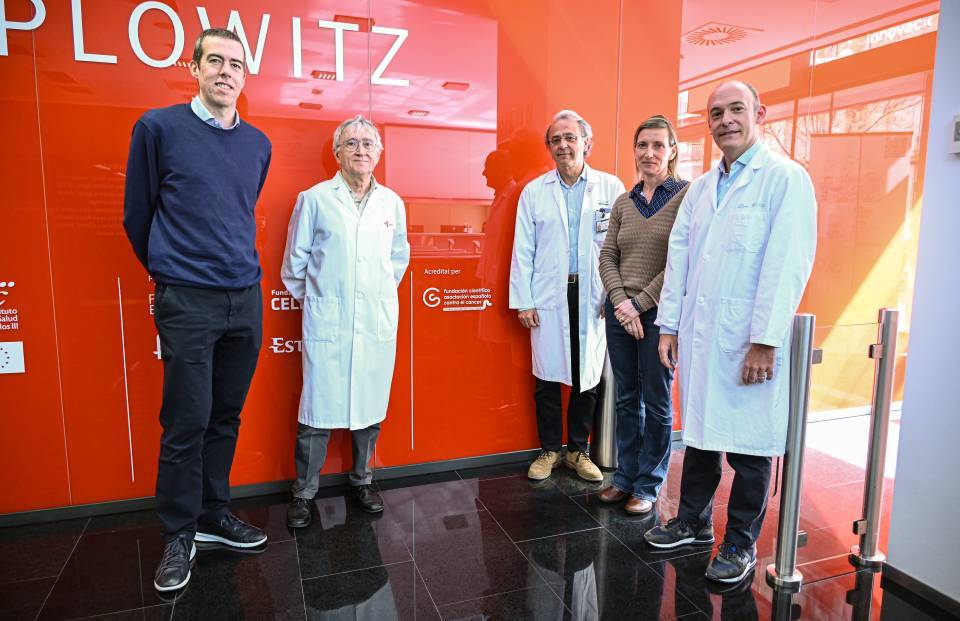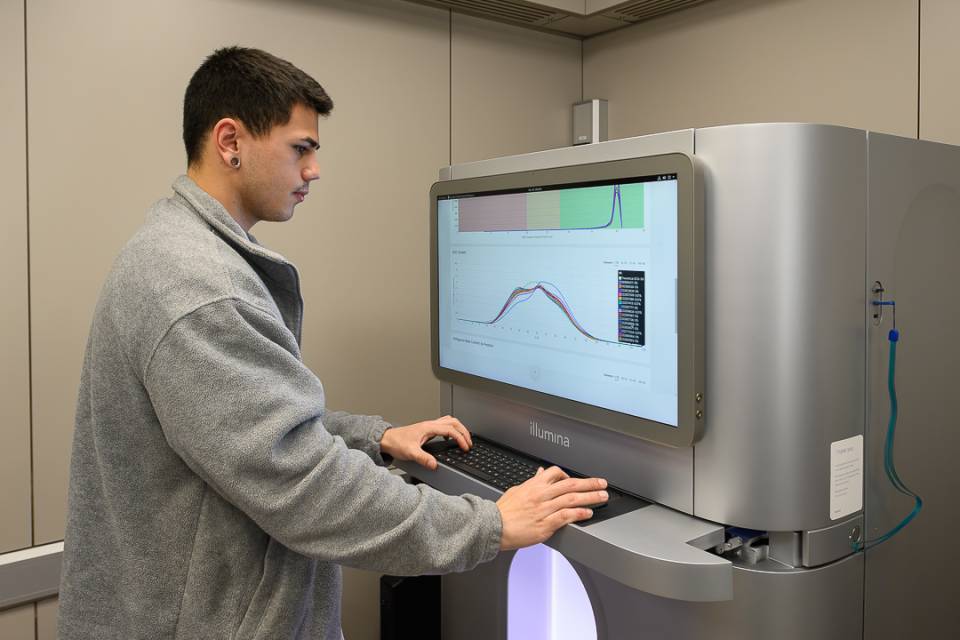News
- Jan (21)
- Feb (19)
- Mar (23)
- Apr (22)
- May (22)
- Jun (20)
- Jul (27)
- Aug (10)
- Sep (24)
- Oct (24)
- Nov (34)
- Dec (20)
- Jan (24)
- Feb (27)
- Mar (15)
- Apr (23)
- May (34)
- Jun (28)
- Jul (26)
- Aug (11)
- Sep (19)
- Oct (20)
- Nov (28)
- Dec (14)
- Jan (14)
- Feb (22)
- Mar (21)
- Apr (12)
- May (20)
- Jun (23)
- Jul (20)
- Aug (5)
- Sep (19)
- Oct (19)
- Nov (26)
- Dec (15)
- Jan (4)
- Feb (18)
- Mar (13)
- Apr (15)
- May (19)
- Jun (22)
- Jul (18)
- Aug (9)
- Sep (11)
- Oct (25)
- Nov (19)
- Dec (15)
- Jan (12)
- Feb (6)
- Mar (13)
- Apr (5)
- May (7)
- Jun (15)
- Jul (11)
- Aug (3)
- Sep (5)
- Oct (8)
- Nov (15)
- Dec (13)
Featured news
Latest news
Adolescent girls at risk of psychosis are less likely to experience remission of subclinical symptoms
The Clínic is committed to more personalized and accessible dialysis
IDIBAPS is recognised as an accredited centre by the Scientific Foundation of the Spanish Association Against Cancer
The Clínic acquires the most sophisticated and powerful genome sequencer
Who looks after the mothers? The invisibility of perinatal mental health issues
In recent years, especially after the COVID-19 pandemic, mental health has gained visibility worldwide. However, when we talk about perinatal mental1
El Clínic warns of the increased use of new psychoactive substances and risk behaviours
Last year, the Hospital Clínic Barcelona treated 2,384 cases of intoxication. They represent 2.2% of the total number of cases treated in the A&E Dep1
IDIBAPS leads a new European project to optimize radiotherapy and protect healthy tissues
On March 25, the IDIBAPS facilities hosted the Kick-off meeting of the European project "Evaluation and optimization of proton arc therapy" known by1
Two out of three high-risk patients do not reach recommended cholesterol levels: women and elderly patients suffer the most from undertreatment
A study led by IDIBAPS-HOSPITAL CLÍNIC and CAPSBE involving nearly 2,000 patients has detected that only 35% of patients with a history of heart dise1
Between batteries and hope: living with an artificial heart
Although advanced heart failure is a disease that can seriously limit a person’s quality of life, technology offers alternatives for these patients.1

